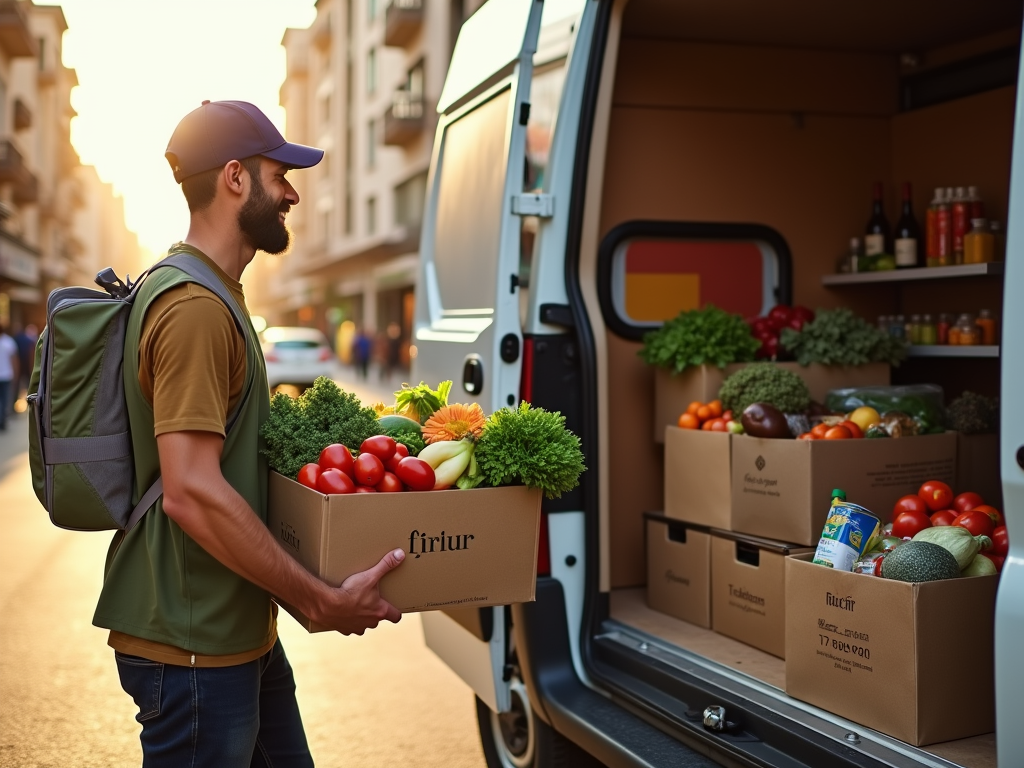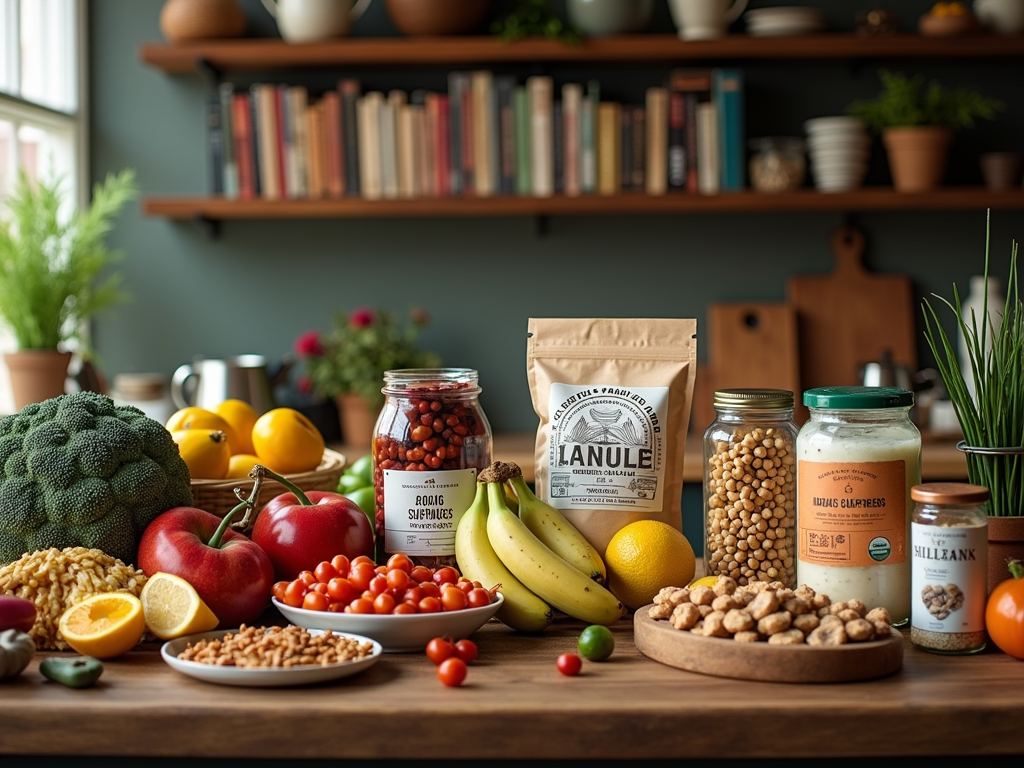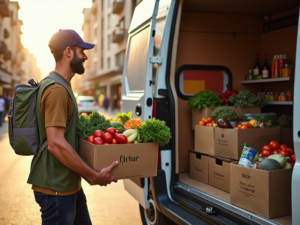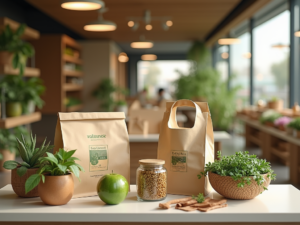
Starting a specialty grocery delivery service in Dubai can be an exciting and profitable venture. This city, known for its diversity and culinary richness, offers a vast market for unique and specialized grocery items. Whether you’re considering ethnic foods, organic produce, or gourmet products, the demand is ever-growing. In this article, we’ll guide you through the essential steps required to launch your own grocery delivery service, ensuring you tap into this lucrative opportunity effectively.
Understanding the Market Demand

Before diving into the logistics of opening a grocery delivery service, it’s vital to understand the market demand in Dubai. The first step involves conducting comprehensive market research, which will help you identify gaps in the local grocery landscape. Here are some key elements to consider:
- Target Audience: Identify who your potential customers are and their shopping habits.
- Competitor Analysis: Research existing grocery delivery services and their offerings.
- Product Preference: Determine what specialty products are lacking in the market.
- Price Points: Understand the pricing strategy of competitors and what customers are willing to pay.
- Trends: Keep an eye on emerging food trends that could shape your specialty offerings.
Creating a Business Plan

A solid business plan acts as a roadmap for your specialty grocery delivery service. This document will outline your business model, go-to-market strategy, and operational plans. Here’s what to include in your business plan:
- Executive Summary: An overview of your business concept, mission, and goals.
- Market Analysis: Insights from your research on the market demand and competition.
- Marketing Strategy: Detail how you will attract and retain your customers.
- Operations Plan: Describe how deliveries will be managed, including logistics and partnerships.
- Financial Projections: Include startup costs, revenue forecasts, and potential profit margins.
Legal Requirements and Licensing
Before launching your grocery delivery service, you need to navigate the legal landscape and obtain the necessary licenses. The specific requirements may vary, but generally include:
- Trade License: Apply for a trade license through the Department of Economic Development (DED).
- Food License: Obtain a food trading license from the Food Safety Department of the Dubai Municipality.
- Vehicle Licensing: If using vehicles for delivery, ensure they are compliant with local regulations and properly insured.
- Health and Safety Certifications: Meet health and safety regulations to ensure product quality.
- Service Registration: Register your business as a legal entity (LLC, Sole Proprietorship, etc.).
Your success will heavily depend on sourcing the right products at competitive prices. Building a reliable supply chain involves:
- Identifying Suppliers: Research and establish relationships with suppliers of specialty groceries.
- Quality Control: Ensure suppliers meet your quality standards and are compliant with health regulations.
- Diverse Product Range: Aim for a wide range of products to cater to various customer preferences.
- Logistical Arrangements: Determine how you will manage inventory and restock products efficiently.
- Negotiating Contracts: Create favorable terms with suppliers that benefit both parties.
Marketing and Customer Acquisition
Once your business is legally established and your supply chain is in place, it’s time to focus on marketing. Effective marketing strategies include:
- Online Presence: Create a professional website and optimize it for SEO to boost visibility.
- Social Media Marketing: Utilize platforms like Instagram and Facebook to showcase your products and engage customers.
- Promotions: Launch introductory offers to attract first-time customers.
- Partnerships: Collaborate with local restaurants or influencers to promote your service.
- Customer Feedback: Encourage reviews and feedback to improve your offerings.
Conclusion
Opening a specialty grocery delivery service in Dubai requires careful planning, a solid understanding of the market, and compliance with legal requirements. By conducting thorough market research, creating a robust business plan, navigating licensing needs, building a reliable supply chain, and implementing effective marketing strategies, you can create a successful grocery delivery service that meets the diverse needs of Dubai’s residents. Take the time to refine your concept and adapt to market changes, and your venture will have the potential to thrive.
Frequently Asked Questions
1. What is needed to start a grocery delivery service in Dubai?
To start, you’ll need a clear business plan, the necessary licenses and permits, reliable suppliers, and a strong marketing strategy targeted at your customer base.
2. How much does it cost to start a grocery delivery service in Dubai?
The startup costs can vary widely based on factors such as licensing, inventory, marketing, and logistics. An estimated range could be anywhere from AED 50,000 to AED 200,000.
3. Can I run the grocery delivery service from home?
Yes, many grocery delivery businesses start from home, especially during the initial phase. However, ensure you comply with local regulations regarding food preparation and storage.
4. How do I find suppliers for specialty groceries?
You can find suppliers through online directories, trade shows, or local markets. Building relationships and negotiating contracts is key to establishing a reliable supply chain.
5. What marketing strategies work best for grocery delivery services?
Online marketing through SEO, social media, and targeted promotions tend to be effective. Collaborating with local businesses and gathering customer feedback also helps enhance your brand visibility.





